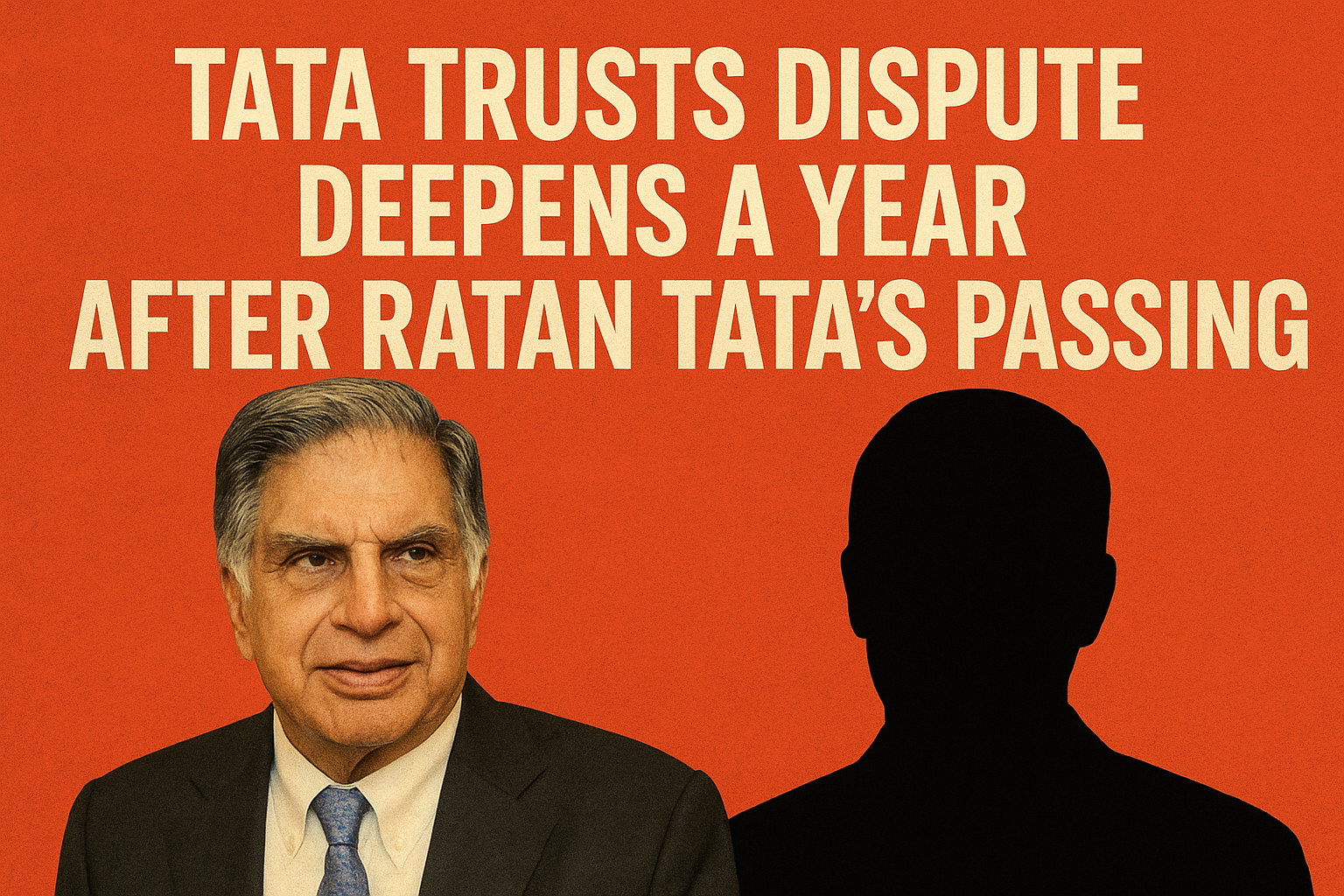
A year after the passing of Ratan Tata, the Tata Group continues to face an internal storm that threatens the stability of its governance structure. The issue revolves around the Tata Trusts, the controlling shareholder of Tata Sons, which holds about two-thirds of its equity. Once known for its seamless balance between philanthropy and business vision, the Tata empire now finds itself navigating through a leadership vacuum and governance confusion.
The Tata Trusts, established by the founders of the Tata empire, have historically guided the group’s moral and strategic direction. During Ratan Tata’s tenure, the relationship between Tata Sons and the Trusts was redefined. The Articles of Association were amended to separate the leadership of Tata Sons from the Tata Trusts. This decision was aimed at ensuring a professional and transparent management structure while keeping the Trusts focused on their philanthropic mission. However, after Ratan Tata’s passing, this separation has created friction between the trustees and the Tata Sons board.
The latest dispute began when the Tata Trusts sought to assert stronger control over Tata Sons through board nominations and decision-making rights. This move was opposed by some members of the Tata Sons board, who argued that it undermined corporate autonomy. The disagreement has divided the boardroom into two camps. One side represents the Trusts led by senior trustees, including those appointed during Ratan Tata’s leadership. The other side supports the management of Tata Sons, which includes executives responsible for the day-to-day functioning of the conglomerate.
The conflict took a serious turn when differences emerged over the appointment of key directors. The Tata Trusts had nominated Mehli Mistry as their representative on the Tata Sons board. However, not all directors supported this nomination. Reports suggest that the decision was opposed by a section of board members, leading to a split vote. Eventually, the majority prevailed, but the incident exposed growing cracks within the top echelons of the Tata establishment.
Legal experts note that the governance issue lies at the intersection of trust law and corporate management. The Tata Trusts, being public charitable entities, must comply with the norms that govern non-profit institutions. On the other hand, Tata Sons operates as a private limited company with a complex network of subsidiaries. Balancing these two identities has always been a delicate task. Ratan Tata managed this balance with his personal credibility and moral influence. In his absence, both sides appear to be testing the limits of their power.
Insiders point out that the current dispute is not just about board nominations but about control and interpretation of the Tata legacy. During Ratan Tata’s time, the Trusts exercised influence without interfering in the daily operations of Tata Sons. His word was enough to settle internal disagreements. Now, with no figure of similar stature to mediate, every decision has become a subject of contention.
Several senior figures from the Tata Group have reportedly expressed concern over the continuing tensions. They believe the ongoing friction could harm the group’s image and investor confidence. The Tata Group, one of India’s oldest and most respected conglomerates, has built its reputation on ethical governance and social responsibility. Any perception of internal instability could weaken that reputation.
At the core of the issue lies a philosophical question about the purpose of the Tata Trusts. Should they act as moral guardians of the group, or should they directly influence its business decisions? Ratan Tata’s model was to empower professionals while preserving the Trusts’ broader mission of philanthropy. Some trustees, however, seem inclined to reassert control over business strategy, citing the Trusts’ majority ownership.
The future of the Tata Group now depends on how this conflict is resolved. Legal clarity, internal dialogue and renewed leadership will be essential. Many observers believe that a structural reform separating the Trusts’ charitable functions from their corporate influence could restore stability. Until that happens, the Tata Group will continue to operate under the shadow of uncertainty.
A year after Ratan Tata’s passing, his vision of harmony between profit and purpose remains the ideal. Yet without a leader of his moral authority, the Tata Trusts dispute reminds India that even the most respected institutions can struggle with questions of power and legacy.





















